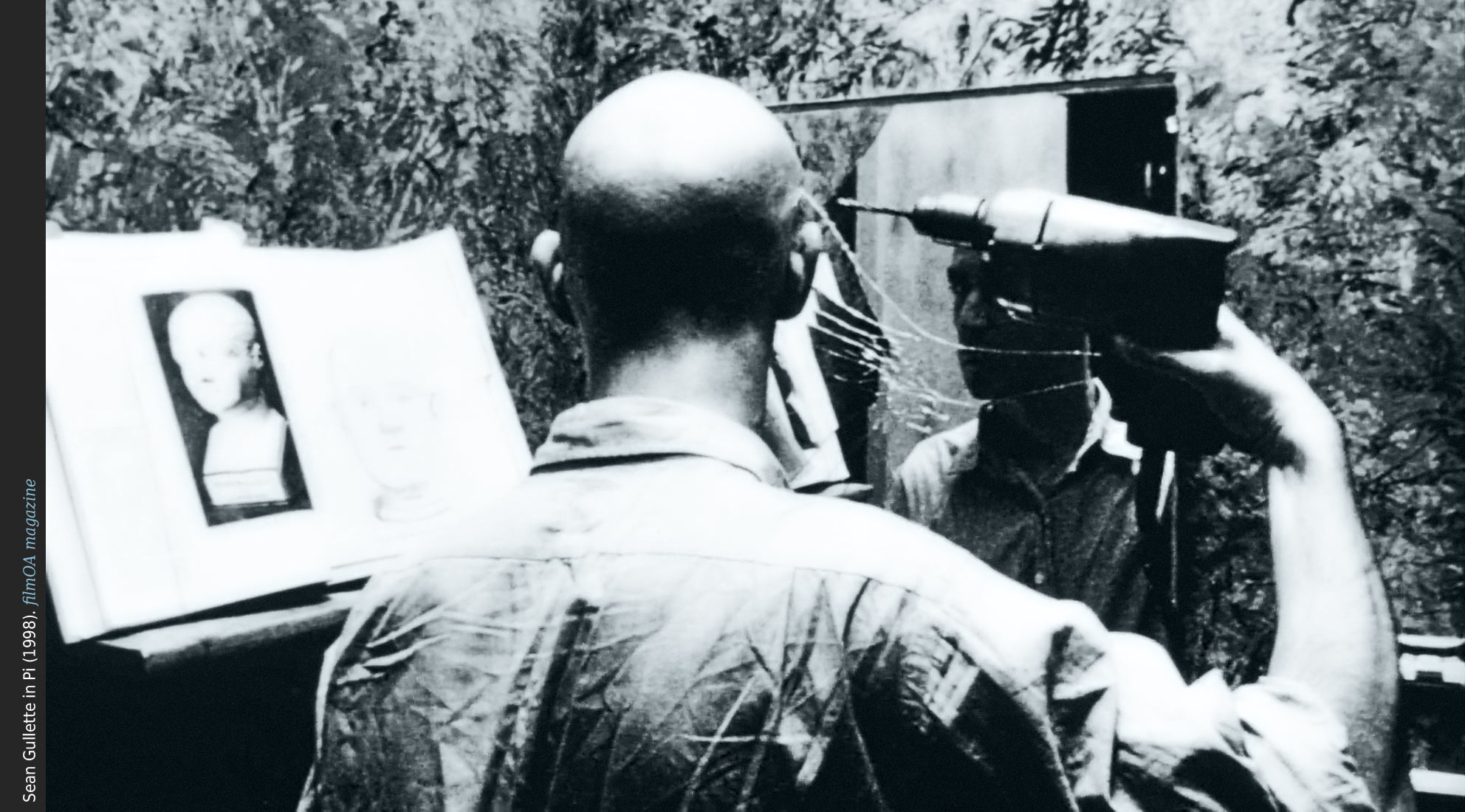Latest
Contact
filmOA v2.0

5/5
On the 14th October 1997 Aronofsky began shooting his debut feature film Pi. He started the days shoot with something he calls The Circle. This is where the entire cast and crew join hands and form an economic and artistic partnership. Aronofsky gave a speech during this moment; a speech that came deep from his soul. He knew he was giving everything to this project. His reputation and career was on the line. Being a filmmaker is the only profession where your career is on the line straight from the first take of your very first film. No other profession has such pressures. Yes, you can try to come back and make another film if your first one stunk. But you can’t go back to those people you asked for money. Once you’ve drank from the well, there is no turning back for more. Aronofsky was more than aware of this on the 14th October with his entire cast and crew surrounding him.
What has made Aronofsky the unique voice he has become is his ability to allow his cast and crew artistic license. He gives them the opportunity to take risks and a chance to make the film their own, a meaningful collaboration. Not many directors give their actors too much breathing space, but Aronofsky is all about working together. He understands that art cannot be made by one person alone. It’s a team affair, especially when it comes to film. It’s important to never allow too many people too much artistic space, but you have to give some of your baby up if it’s going to make it. That’s exactly what Aronofsky has done with Pi. He gave Sean Gullette artistic license to make Max Cohen who he believed Max Cohen was; and boy did Gullette deliver. By giving Gullette the chance to live through Max Cohen, Aronofsky could tick another potential headache off his long list. He knew his lead actor was in control of his main character and understood the vision of the film. It’s a huge weight off your shoulders when you know your main guy gets the film from the get go. It allows you to throw yourself into more worthwhile aspects of the film, and Pi certainly benefited from this.
Pi was released on July 10th 1998 to critical acclaim. Roger Ebert gave the film great praise citing: “Pi is a thriller. I am not very thrilled these days by whether the bad guys will get shot or the chase scene will end one way instead of another. You have to make a movie like that pretty skillfully before I care. But I am thrilled when a man risks his mind in the pursuit of a dangerous obsession.”
Pi is a film about abstract math, but it’s not a math film. In order to enjoy this film you don’t have to be a math genius or have any sort of ability at math. In fact, the film isn’t really about math, it’s more about math theory. Max Cohen tries to connect the universe and look for God - it’s the type of math that people find interesting. No one cares about simple sums or equations but people do care when they see a pattern of shapes emerging in front of them. Take the circle, the simplest shape in the universe. You see it everywhere in nature; the sun, the moon, pupils of your eyes - the perfect shape. Pi is to math what the circle is to nature. With an infinite chain of numbers, who’s to say what this number is? Who’s to say that this number isn’t the DNA for the universe? Max Cohen, along with ourselves, becomes obsessed with this theory throughout the duration of the film; and that’s where it’s brilliance lays. Pi is a breathtaking debut feature by a visionally superb director. It’s ability to have us all begin to think far more poetically about the universe and our roles within it, is a bold thing to achieve as a director with your first film. 
Pi 15th Anniversary Edition is out now on Blu-ray (UK)